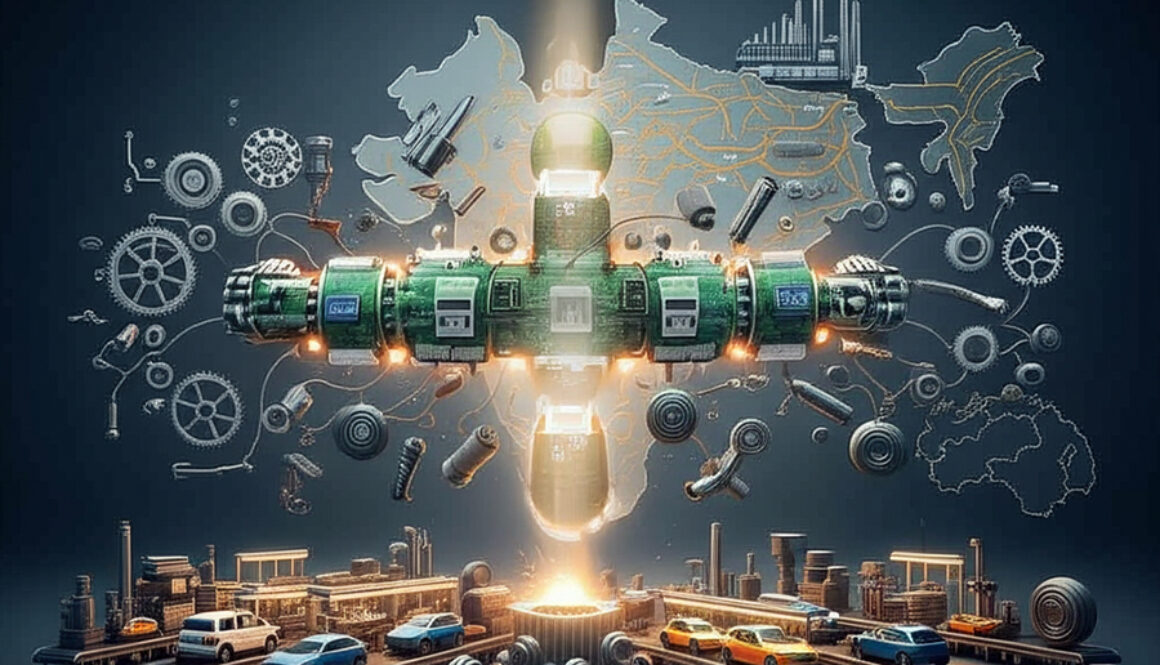OEMs: The Backbone of India’s Automotive and Auto Components Industry
Introduction: India’s Manufacturing & Automotive Landscape
Manufacturing is a cornerstone of India’s economic growth, contributing approximately 15–17% to the national GDP. With an ambitious goal to raise this share to 25% by 2025, the government has been actively promoting initiatives like Make in India and PLI schemes. This sector also employs nearly 12% of India’s workforce, while fueling growth in allied areas like logistics, warehousing, and services.
Among all manufacturing verticals, the automotive industry stands out. As per the Ministry of Heavy Industries, India ranks fourth globally in automobile production, underscoring the importance of this sector in the global supply chain. However, with increasing reliance on imported semiconductor components, there’s a growing focus on strengthening domestic capabilities, and at the heart of this ecosystem are OEMs (Original Equipment Manufacturers).
What Is an OEM in the Automotive Sector?
An OEM (Original Equipment Manufacturer) is a company that designs and manufactures vehicles or key components that are then used by other businesses to create finished products. In the automotive world, OEMs play a central role by providing high-quality, standardized parts that match factory specifications.
Historically, OEMs built entire products for brands. Today, their role extends across product design, assembly, warehousing, and spare parts production — offering solutions that ensure cost-efficiency and superior quality for end users.
The Importance of OEMs in Auto Spare Parts Manufacturing
OEMs are crucial in the production of automotive spare parts, such as engine components, body panels, braking systems, suspension parts, and electrical assemblies. These parts are manufactured to the exact specifications of the original vehicle, ensuring optimal performance, safety, and durability.
Unlike aftermarket parts, OEM auto components guarantee:
-
Perfect fit and compatibility
-
Long-lasting performance
-
Better resale value for the vehicle
-
Manufacturer-backed warranties
This makes OEMs the preferred choice for spare part replacement among authorized service centers, mechanics, and vehicle owners alike.
OEMs at the Top of the Auto Parts Supply Chain
In the automotive supply chain, OEMs lead the production process. They develop high-precision components, which are then distributed by auto parts suppliers to dealers, repair shops, and vehicle owners.
Here’s how the supply chain works:
-
OEMs manufacture components based on original vehicle designs.
-
Automotive parts manufacturers collaborate with OEMs to mass-produce specific parts.
-
Auto parts suppliers manage distribution and logistics to reach service providers and consumers.
This OEM–manufacturer–supplier synergy ensures consistency in quality, safety, and timely availability of parts across the market.
Evolving Role of OEMs in the Electric Vehicle (EV) Era
With the global shift toward electric and autonomous vehicles, OEMs are at the forefront of innovation. They’re investing in:
-
EV-compatible components
-
Battery technologies
-
Smart sensors and telematics
-
Sustainable production practices
As the automotive landscape transitions, OEM auto parts manufacturers must adapt quickly, collaborate with EV-focused tech partners, and uphold stringent quality standards to remain competitive.
Conclusion: OEMs Are the Backbone of India’s Auto Components Industry
From spare parts manufacturing to product innovation, OEMs are the foundation of India’s automotive ecosystem. Their collaboration with auto parts manufacturers and suppliers ensures that vehicles remain safe, reliable, and high-performing across their lifecycle.
As India accelerates its push toward self-reliance and e-mobility, OEMs will play an even more vital role — not just in meeting demand, but in shaping the future of mobility.

